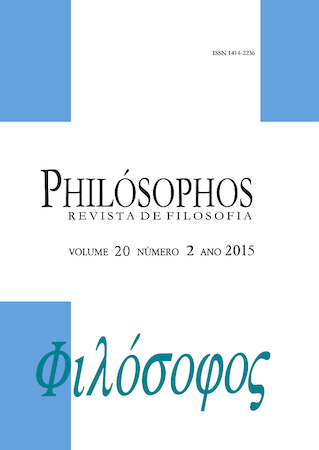FROM <em>APÁTÊ</em> TO <em>PSEÛDÊS</em>. OR: HOW <em>MÊTIS</em> TURNS OUT TO BE A PROBLEM ON MORAL PHILOSOPHY
DOI:
https://doi.org/10.5216/phi.v20i2.35964Keywords:
truth, deceit, self-deceit, mêtis, apátê.Abstract
In this article, we discuss the question about how the practices of deceiving become a matter of discussion on moral philosophy and how they could be thought beyond the sieve of this conviction. As we intend to defend, an answer to this question should refer to the Greek thought, particularly, the Platonic thought in dialogues: Hippias minor and The republic, taking as horizon the problem of the disambiguation of Alêtheia, and the exclusion, by philosophical thought, of the forms of clever and astute intelligence that the Greeks named in honor to the goddess Mêntis. On the other hand, should also imply a distinction of perspectives inherent to what we call by deceiving, which put on opposite sides of the deceiver and the deceived, according to the acknowledgement, or not, of the deceiving. Under this bias, we argue that, for the Greeks, the problem wouldn't be mainly the mistake itself – although platonic thought points that – but being deceived, and mainly, self-deceived.
Downloads
Downloads
Published
How to Cite
Issue
Section
License
Authors who publish in this journal agree to the following terms:
- Authors retain copyright and grant the journal right of first publication, with the work simultaneously licensed under a Creative Commons Attribution License that allows others to share the work with an acknowledgement of the work's authorship and initial publication in this journal.
- Authors are authorized to enter into separate, additional contractual arrangements for the non-exclusive distribution of the journal's published version of the work (e.g., publishing in an institutional repository or as a book chapter), with an acknowledgement of its authorship and initial publication in this journal.















